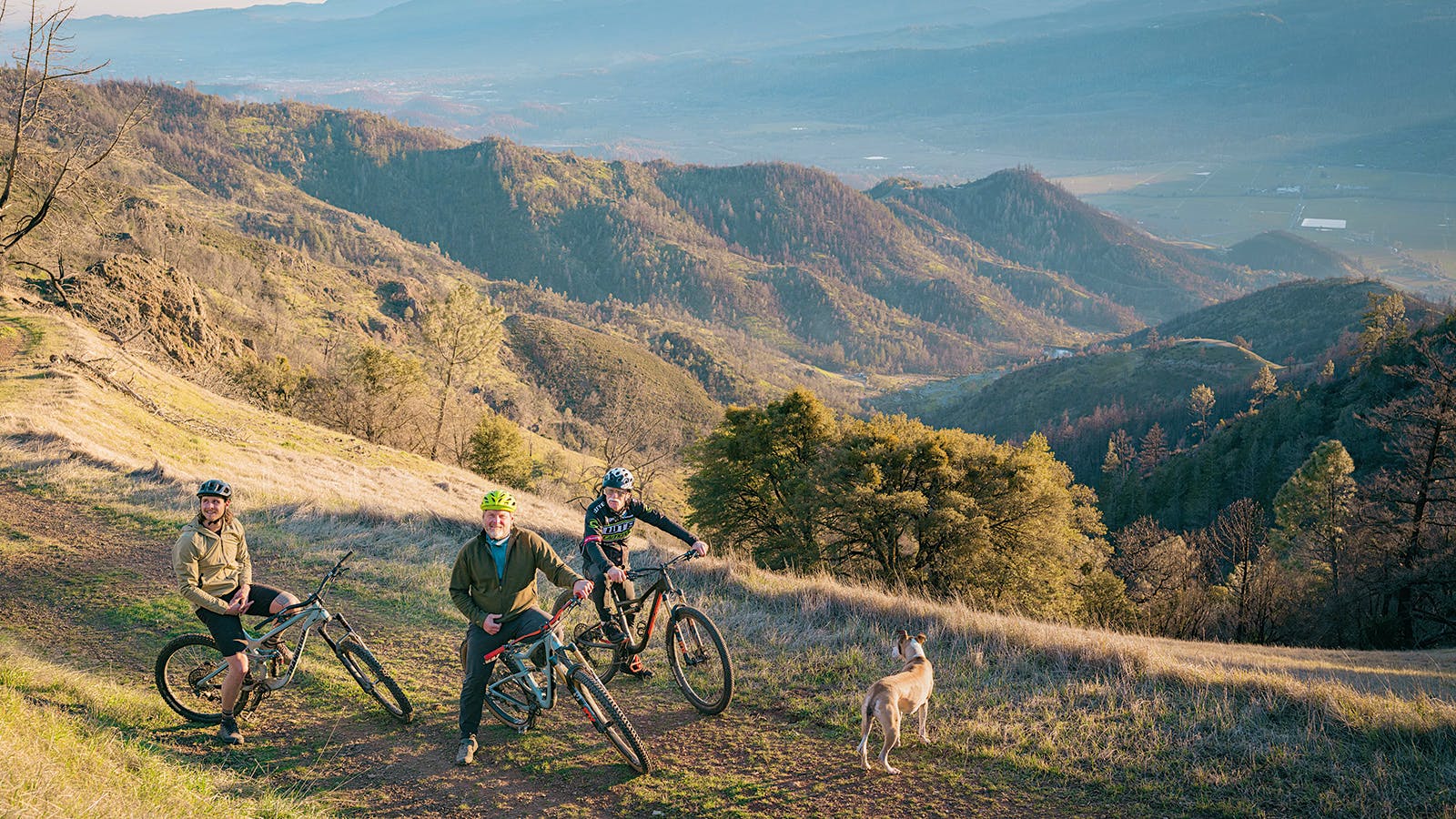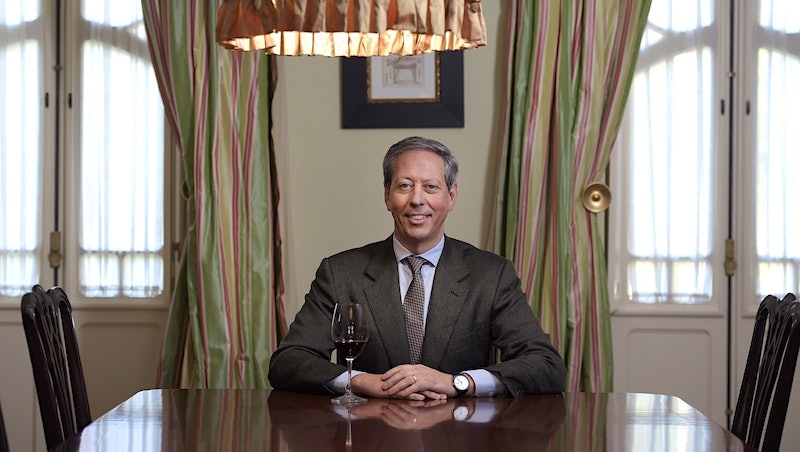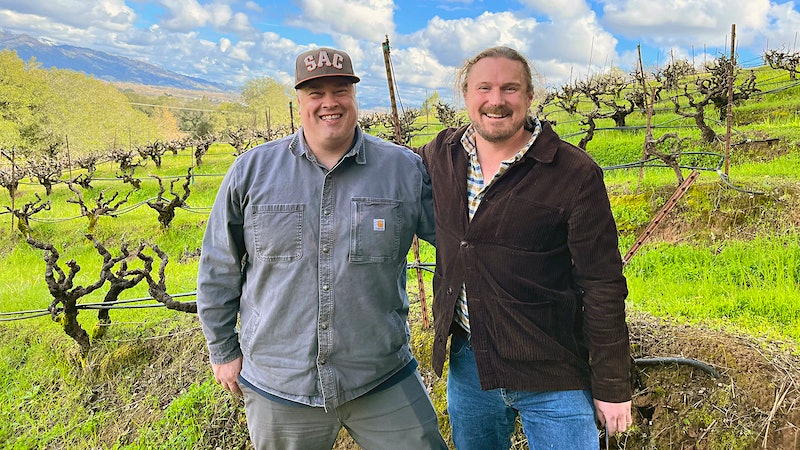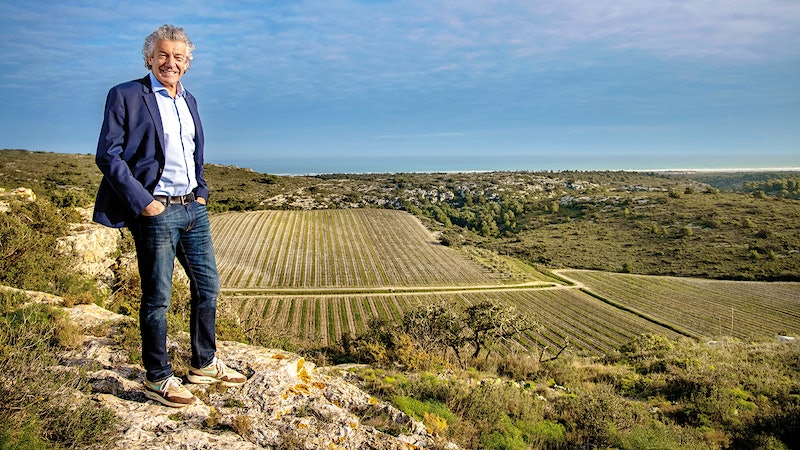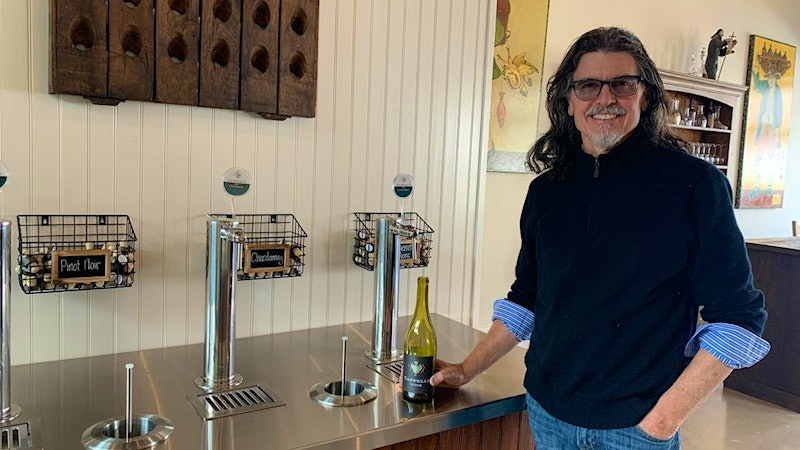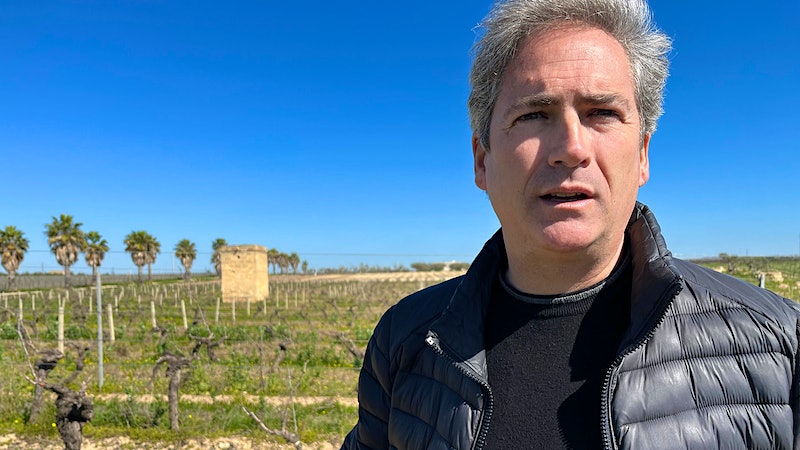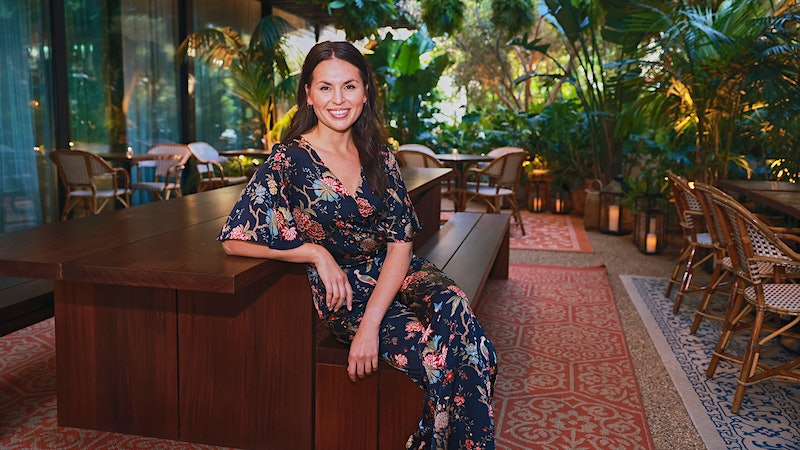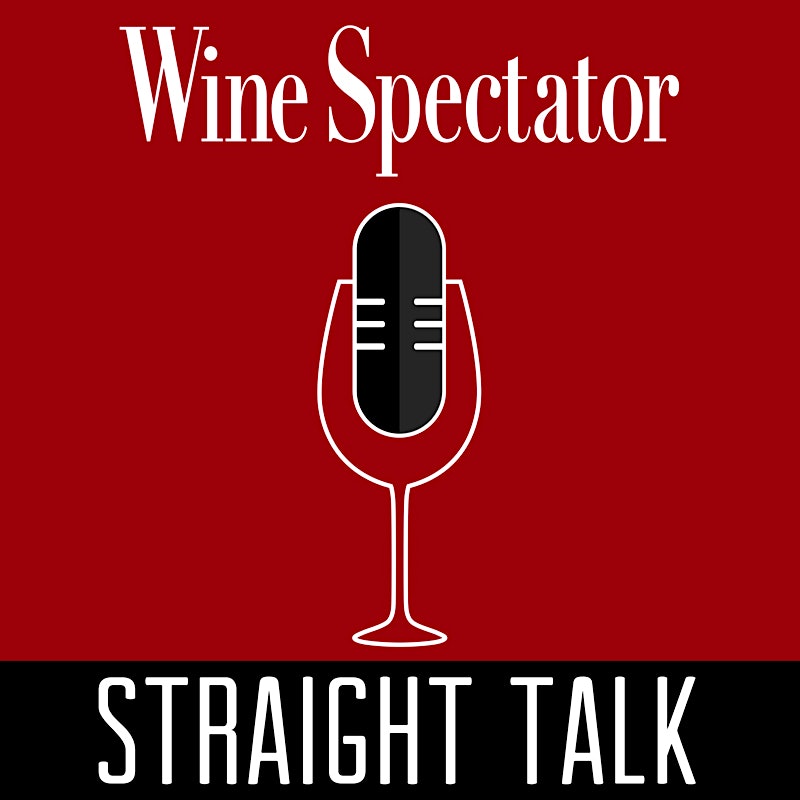We all know that wine can be a delicious part of a healthy lifestyle. And for those who love to eat and drink well—and we’re guessing that’s most of our readers—these pleasures become even greater when we’re focused and active each day.
Those who work in the restaurant and wine industries are no strangers to decadent meals, fine wine and some late nights. This makes staying in top physical and mental condition even more important. Many successful chefs, restaurateurs and winemakers strike this balance exceptionally well. We highlight several of these professionals, who share how sports and fitness add joy and confidence to a life in food and wine. From surfing and running to mountain biking and meditation, their stories are inspiring.
Any discussion of wine and wellness should include science. You may have noticed increasingly stringent government guidelines. Recently, the U.K. and Canada have decreased what they consider acceptable amounts of alcohol consumption, or even proposed zero alcohol as the only safe approach. U.S. officials kept the definition of moderate consumption the same, but removed language from health guidelines that mentioned any potential benefits. Underlining that there are no clear answers, all three nations have different recommendations. Our editorial team combed through the mountains of confusing, and often conflicting, research on how wine impacts our bodies. We’ve also answered some common questions about wine and health, ranging from concerns about sleep and Dry January to COVID-19. To learn more about how wine consumption affects our brain, heart, weight, life expectancy and more, read our full coverage in “Balancing Wine and Health.”
We also point you to some of the best wellness-oriented adventures in California’s wine country. In addition to the growing list of world-class spas, wineries are offering an appealing array of activities beyond sampling wine. Wine lovers heading to Napa, Sonoma or Santa Barbara can intersperse tasting room visits and restaurant meals with hiking, cycling and vineyard-side yoga. You don’t need to abandon life’s pleasures for the sake of health: Wine and wellness really can go hand in hand.

Sarah Gott: Iron Woman of Napa
Director of Winemaking, Joel Gott Wines, Napa Valley
Mornings for Sarah Gott start like this: Wake up to swim laps at 5:30 a.m., home by 7 a.m. to make breakfast for her three teenage kids, followed by either a training ride on her bike or a 10-mile run with her dog.
By the time Gott gets to the winery—she is head winemaker at Joel Gott Wines, the namesake company founded by her husband—she has completed over two hours of strenuous training. And on weekends and during the weeks leading up to a competition, that time commitment increases.
“I love the structure and energy that morning workouts give me for the rest of my day,” says Gott. “I feel revived and focused so I can really concentrate on the lab analysis and the tasting decisions I need to make at the winery.”
Gott is an Ironman triathlete, that rare breed of person for whom even a regular triathlon is not enough. The event—a 2.4-mile swim, 112-mile bike ride and 26.2-mile run—can take more than half a day for even the fittest to complete. Sarah has completed six Ironmans and over a dozen Half Ironmans around the world, from Lake Placid, N.Y., to Hawaii and Canada.
Training and competing with a diverse group of international triathletes has enriched her life in ways she never imagined. “One of my favorite things about this journey has been the way my world has opened,” she describes. “The wine industry in Napa can be very focused and narrow, and making friends and traveling with people from so many different countries has been an incredible experience. Triathlon has taken me there.”
Growing up in Napa Valley, Gott loved running and riding horses, but it was winemaking that captured her imagination early on. She graduated from the University of California, Davis, in 1993 with a degree in fermentation science and went to work for Joseph Phelps Vineyards, where she was appointed winemaker in 2001. “Being the only woman in leadership there was a really interesting experience and a good growth opportunity,” Gott recalls.
A stint as the first full-time winemaker at Napa’s Quintessa followed, but before long, her husband’s incredibly fast-growing wine business required her complete attention. In addition to the megabrand—the Sauvignon Blanc was among Wine Spectator’s 2022 Top 10 Values of the Year—the Gotts operate Gott’s Roadsides, an iconic chain of high-end burger joints in the Bay Area and Napa Valley, as well as the eatery Station and a soon-to-open pizza place.
Gott’s journey to extreme endurance sports began as a slow burn over two decades ago, with longer and longer races. She completed her first Half Ironman in 2001 and made the jump to the full Ironman two years later. “It’s definitely a different level of commitment,” she describes. “More time on your feet and on the bike, specifically, which is really time-consuming and means more hours away from family on weekends.” The biggest adjustment? “Being more tired! I have to really work to make sure I get enough sleep so I can continue to function in my ‘normal’ life.”
There have been dizzying highs, including her first-place finish for her age group in the Lake Placid Ironman. And the awe-inspiring beauty of the race locations; she cites the Whistler (Canada) Ironman, a course surrounded by stunning lakes and mountains, as her favorite. “It’s a very challenging, hilly course, but the views are worth it.”
Of course there can be some serious lows as well. During her second Whistler Ironman, a cold, torrential rain pummeled the athletes for the entire six-hour bike ride. More than one-third of the entrants dropped out. “My hands were so cold I had to stop and ask people to help me open my water bottle,” she recalls. Her family stuck it out on the sidelines, supporting her throughout the grueling day.
By observing both the suffering and the finish line euphoria, her children have “learned a lot about perseverance, dedication, hard work and enjoying the journey,” she believes. The Gotts’ kids are all skilled athletes; the eldest, Lucy, was one of California’s top distance runners in high school and currently runs for New York University. Joel too pursues endurance sports, fitting in long trail runs and mountain bike rides every day.
Gott has inspired a few people on her winemaking team to take up triathlons, and she finds a lot of joy in others’ achievements. Because while competitions give shape to her training, it’s the learning and the community that bring her the greatest reward.
“I joke that if I could just do training camps and not race, I would do that,” she laughs. She helps host a training camp in Napa, an intensive six days of being pushed to new limits with the support of coaches. “So many people love the idea of training in this beautiful place and also enjoying wine at the end of hard training days.”
What are the future goals for someone who has already achieved so many challenging races? There are a number of Ironmans in Europe that Gott would like to experience, but primarily she is simply eager to continue to improve as an athlete. “There is so much we have to learn about ourselves and what we are capable of achieving. I still don’t feel like I’ve had my best race yet.”—K.B.

Eric Ripert: Managing with Mindfulness
Chef and Restaurateur, Le Bernardin, New York
Whether on reality television or the big screen, egomaniac chefs with a penchant for perfection are often held up as heroes. Restaurateur and chef Eric Ripert might seem cut out for this role: He’s classically French trained, a widely recognized celebrity and holds three Michelin stars at his New York restaurant Le Bernardin. But he’s chosen a different path.
“When I was a young chef I had a very short temper. I had no problem being verbally abusive. Then I learned anger is not a quality but a weakness. I was emulating my mentors and I thought it was the right thing to do because anger brings great energy. It took me a few years to realize that I am so wrong. I have to change,” Ripert says.
His journey into meditation began with a growing awareness of Buddhism, a practice that he became increasingly committed to in the late 1990s. “Meditation was part of the practice and it is linked to my studies and discovery of Buddhism,” he says. These principles remain a guiding force for Ripert today, as they serve to bring balance and happiness for a man at the pinnacle of a profession known for unrelenting pressure.
Ripert begins his day around 5:30 a.m. Before the house wakes up, around 8 or 8:30, he finds time for a “very funny ritual” of 12 push-ups and 20 sit-ups. Then, he takes his place in the same location as the day before and meditates peacefully, before eventually walking the 45 minutes to work. Once each week he meets with mentor Geshe Tashi Dorje, a Nepalese Tibetan monk. And when he feels the need, he takes a weekend retreat to India or the Himalayas or to his country house.
“The destination doesn’t matter, but to dedicate time to yourself to be strong. When I come back relaxed, refreshed and inspired, it benefits the business,” says Ripert.
Perhaps that’s why Ripert has the support of both his staff and his wife when it comes to taking time for himself. His formula has proven good for everyone involved. “What I have created is a model that works pretty well and it basically says, ‘What do I have in my life? My family, my business and myself, as Eric. You need to find a balance between the three.’ If I spend too much time in the business, the life of the family suffers. Many chefs find trouble with their family. Then I have to dedicate a big chunk of the schedule to the business. I also think it’s very, very important part to find time for yourself, but not selfishly,” he says.
Ripert’s time for the business is typically a 12-hour day ending around 10 p.m. To ensure his team has time to nurture themselves, the restaurant is closed for Saturday lunch, and he insists everyone has two days off each week.
The professional kitchen is an important place to be mindful, not just to execute at a high level but also for safety. “The nature of the kitchen forces you to be disciplined and focused. It is humid, with wet floors, sharp objects and hot pans. If you are not mindful and focused, you will hurt yourself,” Ripert says.
Of course, even the most practiced kitchen can have missteps or veer into chaos. It’s these moments where Ripert deviates from the stereotypical chef. “These are opportunities to inspire. By being in the present, being powerful and not losing one’s temper, then all of the weaknesses are gone,” he says.
When Ripert finishes his day, he makes the 45-minute walk home. The Wine Spectator Grand Award–winning cellar of 1,000 selections at his fingertips poses little temptation. “I am very disciplined. It doesn’t mean I don’t appreciate a glass of wine or spirit, but I drink occasionally and not to excess,” he says.
Ripert is clear that meditation may not work for everybody, but for those interested in giving it a try, he offers simple encouragement: “To try it doesn’t cost anything. It’s free. If it doesn’t work, what did you lose?” The story of a compassionate French chef may not make for great reality television, but it is a tale of happiness for Ripert, his guests and all those around him.—J.L.

Carlo Mondavi: Adventure in the Great Outdoors
Vintner, RAEN Winery / Co-Founder, Monarch Tractor
Sonoma, California
Even for the most accomplished athletes, achieving work-life equilibrium can be elusive. Before he formally entered the wine industry, Carlo Mondavi, grandson of Napa’s legendary Robert Mondavi, was a professional snowboarder, placing first in many world-class competitions, including Big Air & Style in the U.S. Snowboard Grand Prix, and World Games France Big Air, in 2001.
But in recent years, the exponentially increasing demands of his wine and technology companies have prevented Mondavi from pursuing the backcountry snow and surf adventures that he cherishes. Then, in early January of this year, his dear friend and mentor Ken Block—co-founder of DC shoes and an icon in the snowboarding and rally car driving worlds—died in a tragic snowmobile accident. For Mondavi, the loss was a wake-up call.
“Every year, Ken would call and invite me to join him on an adventure and I would say I was too busy with work,” Mondavi shares. “I can never get that time with him back, and it made me realize what I was missing in my life. I had become disconnected from the language of mountains and from nature, and I needed to find more balance.”
Mondavi is honoring his 2023 resolution, heading north to Tahoe most weekends for snowboarding sessions and booking snow and surf trips to Portugal and Japan. “Being in nature and challenging myself keeps the inner child in me alive; it keeps me calmer and drives my curiosity and creativity. My vision for the future of my life is so different now that I’ve made this commitment to myself.”
Growing up in Napa, Mondavi once focused exclusively on adventures. As a child, he was either skateboarding, rock-climbing or surfing the Sonoma Coast. After discovering snowboarding in high school and a short two years later placing first in the state of Colorado for USASA slopestyle in 1998 (a competition that involves jumps and tricks), Mondavi began attracting major sponsors. He spent four years post-high school competing professionally across the U.S. and Europe.
Although he sustained many injuries—including breaking his nose, orbital bone, ribs, collar bone, sternum and wrist—his decision to leave the professional circuit was actually to pursue another calling. “I really knew what I wanted to do. I wanted to farm and make wine.”
Mondavi first joined his father, Tim, at Continuum, a boutique Cabernet-centric Napa estate founded in 2005. A decade-plus later he created RAEN Winery with his brother, Dante, on the Sonoma Coast to focus on cool-climate, single-vineyard Pinot Noir. He and his wife, Giovanna Bagnasco, also produce wine at their Italian estate, Sorì della Sorba, not far from her family’s Brandini estate in Barolo.
Yet the lion’s share of his time these days is spent on Monarch Tractor, the company he founded in 2018 with three partners to create electric, self-driven smart tractors to allow farmers to farm economically and move away from chemicals. “The Monarch butterfly population has been pushed to the brink of extinction, primarily because of the use of herbicides in agriculture,” Mondavi explains of the company’s namesake insect. “If we can help the wine industry to eliminate chemicals, particularly Roundup, I believe the Monarch Tractor will revolutionize the way we farm.”
Monarch now employs 300 people, and when the first zero-emission tractors became available at the end of 2022, some of the biggest names in California wine, including Kendall-Jackson, Frog’s Leap and Gallo, were lined up to purchase them.
“There are callings in one’s lifetime, and Monarch is one of those callings, which is why I’m busier than I’ve ever been in my life, but I’ve been neglecting the adventure piece,” he says, which has taken a toll on his well-being. “Because I love what I do and the work is so important, it can be hard to disconnect.”
As he has re-embraced outdoor challenges, Mondavi takes inspiration from his hero, Yvon Chouinard, the founder of Patagonia and a devoted climate activist. “Yvon talks about how vital adventures are to being creative professionally. He has created a path that shows it’s possible to be incredibly successful while still enjoying the journey and making time to experience nature.”
Now that he’s “getting back out there,” Mondavi observes how it’s made him better at his job: “When I’m connected to nature, when my feet are in the water waiting for a wave or I’m in the mountains, a part of me is re-awakened and I feel more grounded. I’m sharper, brighter, less burned-out. To be a better, more creative farmer, winemaker and entrepreneur, I have to make that commitment to close the laptop and get outside.”—K.B.

Marcus Samuelsson: Bend It Like Marcus
Chef, Restaurateur and TV Personality
Red Rooster, Hav & Mar, New York
“When I came to New York City at 22, I didn’t know what balance was,” says Marcus Samuelsson. The Sweden-raised chef reflects on the early 1990s in American fine dining, when the culture was “work as hard as possible, foot to pedal, then do it all over again tomorrow.”
Which is exactly what Samuelsson did for many years. At 24, he was appointed head chef at Manhattan’s lauded Aquavit, and soon afterward became the youngest ever to receive a three-star review from The New York Times. The James Beard Foundation named him New York’s Best Chef in 2003.
Samuelsson began building a restaurant empire of his own, with Red Rooster in Harlem (the neighborhood where Samuelsson still lives with his wife, Maya Haile, and their two children) followed by dining outposts in Miami, the Bahamas, Canada, Sweden and Scandinavia. A judge on TV shows Chopped and Top Chef, as well as the host and executive producer of the No Passport Required series, he is also a prolific cookbook author.
But the relentless, head-spinning pace came at a cost to his physical and mental health.
“I don’t think I found balance until I met my wife. She warned me, ‘You are close to burning out,’ and through her being [there] and her practice of yoga, I was able to prioritize more fitness and family time. It became clear that in order for me to create, I have to be fit, so it’s something I put a premium on.”
Sport was once the primary passion for Samuelsson, an outstanding soccer player who dreamed of going professional as a teenager. Discouraged from that path because of his smaller stature, he never lost his passion for the game. “I’ve done two things all my life: I’ve cooked and I’ve played soccer.”
Samuelsson joined a league in downtown Manhattan, the Chinatown Soccer Club, where he frequently plays pick-up games, and took the role of chief culinary coach for the major league team New York City Football Club in order to be closer to the sport. “I love meeting the guys on the team, going to their games with my family and teaching them how to improve their diet. Many of them are coming to New York for the first time, and food is a huge part of being an athlete.” He also sometimes joins the team’s training sessions.
Most days, though, running is Samuelsson’s most efficient path to fitness. “Getting in a workout every day is something you have to really fight for and structure,” he has learned. Samuelsson takes his son to school every morning and then goes for a run—most frequently the 6-mile loop around Central Park. He’s run the New York City Marathon twice. “I love the workouts for big races; you have to be so committed,” he says. “And then the day of the race is sort of a celebration.” As he gets older, he’s also taking care of his body in different ways, incorporating rowing machines and treadmill workouts. “I’m thinking of my back and my feet. We chefs use our bodies a lot, and I want to stay in this line of work,” he says.
Balance also means taking time away from his restaurants. “I’ve worked in hospitality for a long time. I don’t take long vacations, so yes, there are sacrifices I make, but if I’m not seeing my family or don’t have time in nature, I can’t create,” he adds.
On the four nights a week he works the floor at one of his restaurants, he gets home by 11:30 p.m. to share a glass of wine or tea with his wife, a ritual he holds dear. “It’s the best way to slow down and process what’s behind us and what’s ahead of us. It’s a magical time.”
Having come of age during the hardest-charging era in restaurants, Samuelsson prioritizes a different lifestyle for his team. At his newest restaurant in downtown Manhattan, Hav & Mar (a Swedish-Ethiopian menu celebrating his heritage), the goal is to have the staff work only four days per week. “If we want to keep attracting the best people in our industry, we have to create ways for them to work at a restaurant and also have a life outside of that work. It’s very important to me. Fine dining should not mean burnt-out staff—that is not quality.”—K.B.

Laura Bianchi: Posed for Success
Winemaker, Castello di Monsanto, Tuscany
So you think your boss can be unpredictable and heartless? Laura Bianchi has you beat: “I think that my main boss is Mother Nature. Managing that is a very stressful part of the job,” she says. “I remember my first vintage, 1989, and it was such a poor harvest that we didn’t put any wine in bottle and I cried ... Most people think that because we live in the countryside, we have an idyllic life with peaceful moments, but most of the time it’s the opposite. This is a type of business where you cannot control everything.”
Fortunately, Bianchi found it within herself to persevere through that first vintage and now counts more than 30 to her credit as winemaker and proprietor of Tuscany’s Castello di Monsanto. With 178 acres of vines across four high-altitude vineyards, Monsanto cultivates enviable holdings within Chianti Classico.
At the pinnacle of Monsanto is Il Poggio, a vineyard that Laura’s father Fabrizio first decided to vinify on its own in 1962, a move recognized as the start of single-vineyard Chianti Classico. By 1968 he’d abandoned the inclusion of white grapes. Today, the vineyard remains a calling card of the estate, lending its name to Monsanto’s gran selezione.
Perched atop the rows of Sangiovese, Canaiolo and Colorino in Il Poggio is a triangular stone platform built for viewing. Bianchi sometimes comes here to practice yoga. “One day I decided to do yoga over there. It was incredible—difficult to describe—and I felt part of the universal energy. It’s a really special place for me to do yoga,” she says.
Bianchi has been a student of yoga for more than 30 years. She began the practice while in training on the National Italian Team for the Modern Pentathlon, an event that includes fencing, swimming, equestrian elements, running and pistol marksmanship. “Yoga is really helpful before games. One of the skills is shooting, and to be inside yourself is so important,” she says. Bianchi won the Italian championship in 1984. She also ranked No. 22 at the world championships in Poland that year.
Bianchi continues to practice yoga, pranayama and meditation. In place of pentathlon competition, she finds ways to apply these practices to her life in wine. “If I have practiced yoga before I start blending wine in the morning, I feel my senses, my nose, my palate are more awake and aware. I see and taste the difference in my concentration. If you are tasting with your mind, you are in another place and the result is different,” she says.
Bianchi has shared her passion with others, including starting her children in yoga around age 3. Several people working at the winery also practice yoga daily. She credits yoga for helping her to think, find balance and manage decision-making. It has even helped her to come to terms with that fickle boss. “I think there is an element that I transfer to the wine, a respect for the soil that is the Monsanto style. I want to respect what Mother Nature is producing. I think this is a key element in the style of the wine.”
Bianchi says she has also gained an immense respect for her father and his vision for Monsanto, allowing her to put aside the need many young people feel to make revolutionary changes. “I think this is an attitude that I learned in yoga—to learn and understand, and find the right direction step by step,” she says.—J.L.

Bobby Stuckey: Exercising Self-Control
Restaurateur and Sommelier, Frasca and Pizzeria Locale, Colorado
When Bobby Stuckey was 29 years old and working as head sommelier at The Little Nell in Aspen, Colo., home to one of the nation’s most elite wine lists, he made a decision: He would never go out drinking with friends after his work shift.
In an industry where boozy late-night socializing is standard procedure, his resolution was unusual, but one that has enabled him to maintain a level of fitness that is impressive even for a former pro cyclist (which he is). In addition to running the hospitality empire he has spent the past few decades building (Frasca and Pizzeria Locale in Boulder, Colo., and Tavernetta and Sunday Vinyl in Denver, as well as the Italian wine brand Scarpetta), Stuckey runs 50 miles a week, with a long bike ride every Sunday. And he competes in at least one marathon a year.
“I love this industry and I want to be in it forever,” he says. “It upsets me that restaurant professionals are often celebrated as hard-partying rock stars. You can’t live like that for long; it’s not sustainable.”
Born into a family of endurance-sport enthusiasts, Stuckey ran his first 10K race at age 7, then moved on to triathlons, eventually becoming a professional cyclist until the age of 25.
As a self-admitted competitive person, Stuckey says the thrill of racing was a rush, but his dependence on exercise runs deeper. “I’ve always battled serious ADD [attention deficit disorder] and dyslexia, but I never took medication,” he confides. “Growing up, my grades in school were always much better during cross-country and track season, so it didn’t take me long to realize that I needed exercise in order to concentrate.”
Concentration is essential to managing his complex hospitality business, including that Stuckey still works the floor at Frasca five or six nights a week. Instead of post-work cocktailing, the Frasca Hospitality Group team started cycling together on Sundays, recently completing the famous 79-mile Copper Triangle, a course that crests three stunning Colorado mountain passes.
Most days, though, running is his go-to. “I love cycling, and I’m better at it, but running is more time efficient,” he says. “Cycling will be my ‘golf’ in retirement.” The morning we spoke with him, he had just finished a 10-mile loop with some interval training mixed in along the trails in Boulder, which took roughly 75 minutes. Running is also an accessible workout when on the road, and when he travels for work, he tries to select hotels near interesting running trails.
In addition to keeping him fit and focused, running is the ultimate stress therapy, he believes. Throughout the pandemic, Stuckey became one of the restaurant industry’s most important voices, co-founding the Independent Restaurant Coalition and advocating for financial aid in the government’s stimulus package to save thousands of small businesses. “During shutdown, I was on Zoom calls every day for hours, working harder than when my restaurants were open,” he reflects. To cope with the anxiety, he teamed up with a colleague and began running twice per day, in order to hit 100 miles in one week.
“Drinking late with your mates probably isn’t the best way to deal with stress,” he advises. “There’s a lot to be said for reading and listening to music to create better sleep patterns.” Stuckey’s nightly routine typically looks like this: Home by around 11 p.m., shower, one beer, music, conversation with his wife (who, luckily for him, is a night owl) and bed around midnight. And then, rested, up in time for a morning run.
What’s his favorite playlist or podcast for long runs? “I never run with earbuds. I want to be detached and technology-free,” he says. “Some of my best ideas and my most creative thinking for our restaurant group have happened during those runs.”—K.B.

Jean-Charles Cazes: Waves of Rejuvenation
Director of Famille JM Cazes, Château Lynch Bages, Bordeaux
As surfers do, Jean-Charles Cazes has traveled the world in search of the perfect break—from Indonesia to Costa Rica, Nicaragua, Puerto Rico and the Maldives, he’s chased the thrill of the wave since he was introduced to the sport at age 12.
Today, you’re most likely to find him heading out in the morning with his board along Bordeaux’s Atlantic coastline, where he learned to surf while growing up at his family’s nearby Château Lynch Bages. “Surfing cleans everything off,” Cazes describes. “Some people get a kick out of golfing, but I find surfing the most fantastic therapy for forgetting your worries. After a good surf session, I’m full of energy and my head is full of images of great waves for the rest of the day.”
Scion of Bordeaux royalty, Cazes was named for his great-grandfather, who purchased Pauillac’s Château Lynch Bages in 1939. After a career in finance, Cazes took the reins from his father Jean-Michel and now helms the far-flung wine empire his family has built, with vineyards throughout France and abroad, including Châteauneuf-du-Pape’s Domaine des Sénéchaux. But Lynch Bages, overlooking the Gironde River, remains the spiritual and physical center of the family dynasty, and where Cazes comes to work every day.
Unlike winemaking, surfing wasn’t part of the family heritage. “Surfing was difficult as a child, because my family did not like water sports and my parents weren’t great swimmers; they didn’t understand it and they were worried,” says Cazes, the youngest of four children and the only boy. His mentorship in the sport came through a family connection, pro surfer Miki Dora, whose father Miklos was a close friend of the Cazes family and an influential and well-known figure in the wine trade (according to Cazes, he was the linchpin between Baron Philippe de Rothschild and Robert Mondavi on the creation of Opus One). Dora spent summers with the Cazes family at their home in Cap Ferret and became a legend in French surfing lore.
The local surf community on the Médoc peninsula included some wine industry overlap. Cazes’ frequent surf trip buddy is Thibault Despagne, owner of Bordeaux’s Château Mont-Pérat in Entre-deux-Mers.“Our first surf trips were to Morocco; it’s the classic destination for young French surfers. As soon as you get your driver’s license, you drive to Morocco.”
There’s one famous wave that brings the surfers of the world to Bordeaux: the Mascaret. About once a month, when changing tides, dominant winds and lunar phases align, the sea pushes a swell up the Gironde River, giving surfers a 3-mile wave to ride upstream through wine country. “The experience is magic, especially at dawn on the misty river,” says Cazes. “I’ve seen world-class surfers who are accustomed to big waves have a real blast on the Mascaret.” He and Despagne have talked of crafting a cuvée in the wave’s honor.
Reconciling a life in the wine business with a passion for surfing can be challenging. Cazes has long admired his friend Mark Lartigau, co-owner of BNP, importer of Bordeaux wines, who lives in Long Beach, a coastal town near New York City. “He’s a great surfer and the only person I know who manages to surf in good conditions all year yet still hold down a job. He often takes orders by phone in the beach parking lot.”
In order to “maximize surfing” in his own life, Cazes recently built a house in the western Médoc very close to the Atlantic in a town called Hourtin. “I can be at the winery in Pauillac in 30 minutes and I’m just a few kilometers from the ocean,” he describes. “I’ll fit in a surf session at dawn before work, or catch some waves at dusk in the summer when the days are long.”
Originally, the idea was to create a casual surf hut to be used as a second home, yet it has quickly become his primary residence. Cazes surfs year-round, as Bordeaux’s coastal waters never get punishingly cold, and he has reduced his work travel. “What the pandemic taught us is that only so much business travel is really necessary.”
Spending more time near both the ocean and his vineyards, he finds himself more connected to nature and to himself. “When you are surfing, you have to be in tune with all the elements of nature, or you could get thrown on your head,” says Cazes. “It’s similar to managing a vineyard—you have to be sensitive to every aspect of nature that surrounds you.”—K.B.

Marc Vetri: Grappling for Balance
Chef and Restaurateur, Vetri Cucina, Philadelphia
Like many people passionate about their job, chef Marc Vetri could happily work seven days a week. But as his family—and his family of restaurants—continued to grow, he acknowledged the importance of finding balance. “My third restaurant opened up a week before my third baby. I went home and was like, ‘I think I’m gonna work five days a week.’ I love work. So, it’s necessary to recognize the need to step back, or that my wife just needs a little more help,” says Vetri, who opened Wine Spectator Best of Award of Excellence winner Vetri Cucina in 1998.
The Philadelphia-based chef has simple advice for finding joy in fitness. “You have to take care of yourself. I’ve always liked to workout, but it’s not just about lifting weights, but doing something that you love,” he says. Starting during the hectic opening of his first restaurant, Vetri made a habit of hitting the sporting club at lunchtime to play pick-up basketball, often encountering some serious competition from college players and other local stars of the court. “That was awesome,” recalls Vetri. “But I got to around 40, and my knees started to hurt and I’d have to stretch 45 minutes before and after the game.”
It was around that time an old friend introduced him to Brazilian jiu jitsu (BJJ), and Vetri along with a few of his chefs began attending Saturday classes. While it is a martial art, BJJ does not permit striking, instead focusing on controlling and defeating one’s opponent through a variety of submission holds.
“It just resonated with me. I just really liked it. And it was just kind of this awesome release. I’d learn some new moves and roll with the guys and if I missed a Saturday, I didn’t feel the same,” he says.
With 15 years under his belt (literally a black belt), Vetri is accomplished in the sport, having medaled in the World Masters. He intends to compete once again this year. Vetri points out that BJJ encourages fitness and strength, but in many ways these are secondary to technique, so a capable athlete can continue for a lifetime. “It’s a lot more than meatheads fighting with each other. It’s less about strength than watching and knowing the other guy. You have to think like four moves ahead. It’s physical chess,” explains Vetri.
Anyone who trains physically knows diet is an important ingredient of success. “Listen, as a chef, you are always eating and tasting and you really have to be mindful of what you put into your body. I make an effort to eat vegetables, grains, legumes. Obviously, I’ll mix in a Shake Shack burger now and then. It’s about having balance, not eating totally healthy.”
Vetri has made nutrition part of his greater mission in founding the Vetri Community Partnership, a nonprofit dedicated to nutrition education. The initiative brings information and guidance to underserved communities, with programs like mobile teaching vans that visit farmers markets to teach knife skills and simple, healthful recipes.
Even the pandemic didn’t slow Vetri’s momentum. In February 2020, he opened Fiorella, a pasta bar located in the Italian Market of Philadelphia, following that with the June opening of Mr. Maurice’s Italian at Ace Hotel Kyoto, and in July bringing Osteria Fiorella to Red Rock Casino Resort & Spa in Las Vegas.
In 2022 he opened MVP, a pizza place in the Wells Fargo Center, home of the Philadelphia Flyers and the Philadelphia 76ers. His newest venture is an Italian steak house called Fiore Rosso in the Philly suburb of Bryn Mawr.
Vetri draws many analogies between his career and being a student of BJJ. “Over time, you grow a little wiser, more controlled. And, I also choose my partners wisely,” he says. Unlike traditional wrestling, being on your back in the world of Brazilian jiu jitsu isn’t a position of disadvantage. A skilled competitor can find many opportunities to win the match. With that in mind, Vetri muses, “I’ve lived most of my life on the bottom. I’m very comfortable there. I’ve been on my back my whole life, fighting up.”—J.L.

Mike, Randy and Alex Dunn: On the Trail of Tranquility
Three Generations of Vintners, Dunn Vineyards, Napa Valley
For Mike Dunn, head winemaker at Napa’s Dunn Vineyards, mountain biking is almost more important to his mental well-being than to his physical health. “It’s the feeling of flow when you’re moving your limbs in a rhythmic way and your brain disconnects—it’s like meditation,” he describes.
Dunn, 56, began riding in college after an ankle injury prevented him from surfing (proximity to the ocean being the reason he had transferred to the University of California, Santa Barbara). He joined the university’s cycling team and also competed in the Davis Double Century, a 200-mile cycling race. Hooked on the sport, he worked a series of jobs in bike shops, eventually opening his own shop in Calistoga, Calif., which quickly became a haunt for local winemakers. “Regulars like David Abreu, Michael Honig, James Hall were all there; it was the hangout for wine people who wanted to come drink beer in the driveway,” he recalls.
After the death of his younger sister, Dunn stepped in to help run the winery that his father, Randy Dunn, had founded on Howell Mountain in 1974. “My dad was completely despondent after the loss of my sister,” he says. “So I taught myself a lot about making wine, and now I’ve done 22 harvests.” As head winemaker, Mike oversees Dunn’s production of cult Cabernets and also launched boutique label Retro Cellars with his wife, Kara, where they focus on old-vine Petite Sirah and Zinfandel.
Although no longer in the biking industry, the sport remains central to Dunn’s life and identity. “The typical winemaker position can be very sedentary—and then there are all the lunches and dinners,” he says. “Many winemakers sit at the Rutherford Grill and drink a magnum for lunch—I’ve watched people in my tasting group gain 40 pounds.”
Dunn aims to ride three times per week, each a 90-minute climb through Napa’s trails, accompanied by Beau, his 74-pound rescued pit bull.
“Cycling is a huge relief from my work. I like riding alone; I’m not interested in the competition and not too concerned with the challenge of the trail, it’s about the solitude and the beauty.”
It’s a passion he shared with his father, who took up mountain biking later in life with his son’s encouragement (and his gifts of many first-class bikes). Famous in the valley as the first winemaker at Caymus Vineyards and then the pioneer of Howell Mountain with the creation of his own estate, workaholic Randy long neglected exercise. After a high-cholesterol scare, he became a competitive tennis player, but injuries forced him off the court. Randy found mountain biking was easier on his hips, actually cured his plantar fasciitis, and lowered his cholesterol. But most of all, mountain biking brings him joy.
His daily ride takes him to trails in nearby Wildlake Ranch, 3,000 acres of wild forest land along the ridgeline of Howell Mountain that the Dunns helped preserve with a $5 million gift to the Napa Land Trust, which prevented its development. Goal-oriented by nature, Randy uses his 2.5-hour afternoon rides to check the four game cameras he’s installed on the property. “I’ve captured great photos of bear families, bobcats and cougars,” he says. “Exercise is a big part, of course, but the beauty of nature is what it’s mostly about for me.”
Like his son, Randy usually rides alone, with his dog Dominga—a rescue he found on the streets of Mexico—and has learned to tame his competitive side. “If I go with a group, I tell them to go as fast as they want on the downhills, but I might take it slower, because I don’t want to fall and bust a hip!”
One person neither Mike nor Randy would think to compete with is Alex Dunn: Mike’s son and the third generation at Dunn Vineyards. A lifelong mountain biker, artist and skilled trail-builder, Alex, 28, raced competitively during high school and college and has designed and shaped some of Napa’s best bike trails. He recently joined the family business on the farming side, and when he’s not tending the estate’s vines, he’s biking through them.
“Alex can jump terrifying things I take no part in,” says his father, though they do meet up for evening rides together. While Randy is less likely to join them on the trails (“Dad gets frustrated that he is so much slower than us,” Mike chuckles), the three generations do meet up for casual post-ride cookouts, usually grilled hot dogs paired with beer and leftover Dunn Cabernet from the tasting room. Of course, Beau and Dominga, accomplished athletes in their own right, are invited. —K.B.



